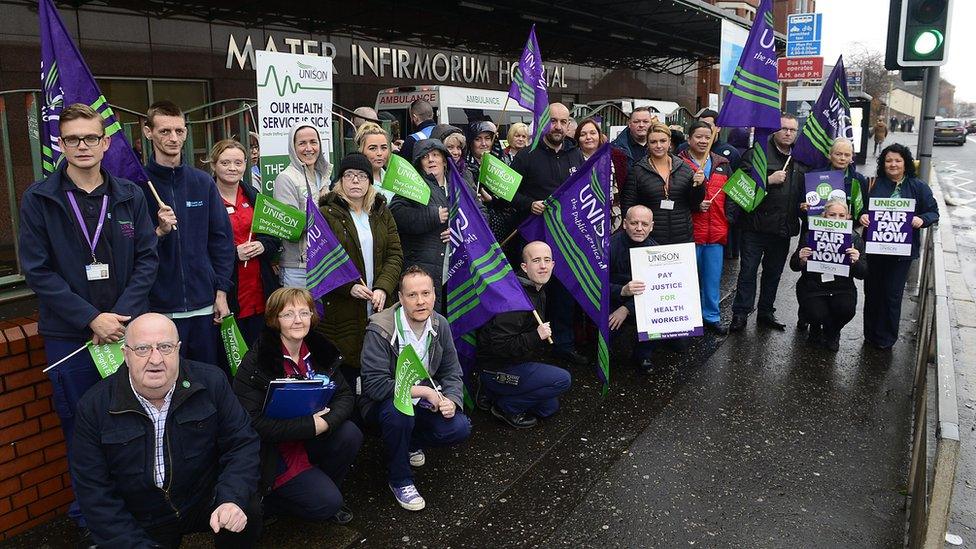Health strike: NI Secretary Julian Smith says health service crisis is unacceptable
- Published
NI Secretary Julian Smith confronted by healthcare workers over pay
The crisis in Northern Ireland's health service is "unacceptable", NI Secretary Julian Smith has said, as industrial action by healthcare workers continues.
Mr Smith was speaking during a visit to Belfast where he met members of the NI Civil Service and trade unions.
He said he was "extremely sorry" that the strike was affecting patients, families and workers.
Health workers are protesting at pay and staffing levels which they claim are "unsafe".
The union, Unison, that represents more than 6,500 registered nurses and 3,500 health care assistants, has called for "compromise and money on the table".
Northern Ireland has been without a devolved government since January 2017 when the power-sharing parties - the DUP and Sinn Féin - split after a bitter row.
Mr Smith said he would have more conversations both with the NI Civil Service and the unions over the coming days.
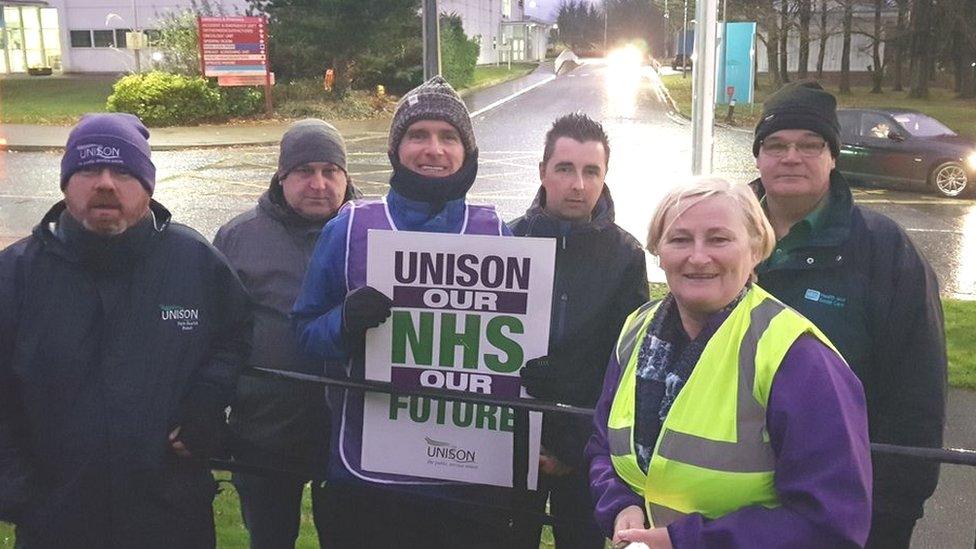
Unison workers taking industrial action in Londonderry on Wednesday
"This area of health is a devolved matter so the decisions have to be taken by the NI Civil Service, they are working in difficult circumstances because Stormont's not running.
"But I am working with them to see if we can find a way through."
He added that the situation was "unacceptable" and that he would "do whatever I can within the powers I have to help the NI Civil Service move this forward".
However, when asked about the possibility of extra money for the civil service to deal with the ongoing healthcare issues, Mr Smith maintained that the negotiations on health service issues would be led by the civil service.
'Real risk' of consequences
His comments come as industrial action continues to affect the health service.
At the Ulster Hospital, routine afternoon outpatient appointments, with the exception of maternity and children's, have been cancelled.
Patients in the South Eastern Trust area who have not received a letter of cancellation should attend as normal for their appointments.
In the Western Trust area, strike action by support services staff is expected to affect hospitals, day centres and residential homes.
Full details and advice on current health care services can be found on the Health and Social Care Board website, external.
Dr Michael McBride, Northern Ireland's chief medical officer, has warned that there is a "real risk" of unintended consequences if industrial action continues.
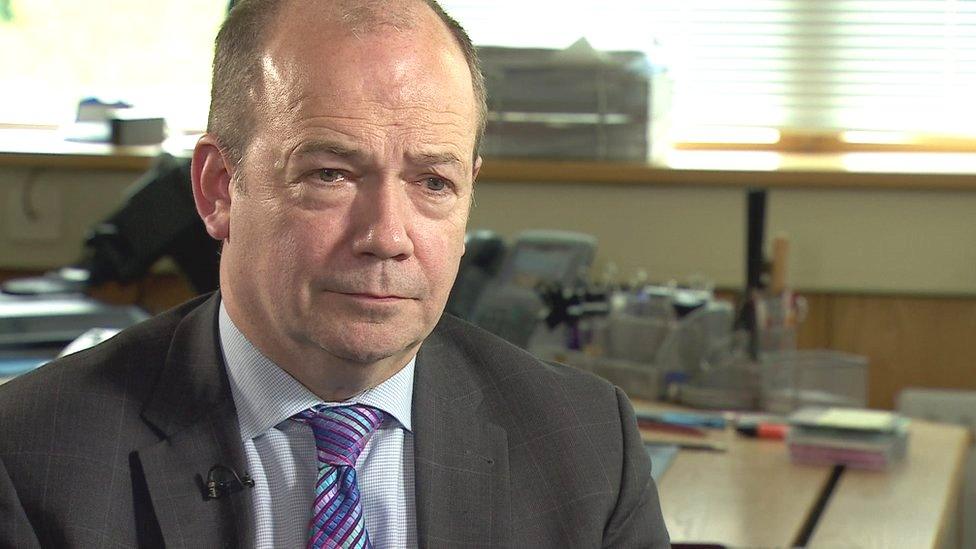
Dr Michael McBride stressed that he respected the workers' right to take action
Speaking on BBC NI's Nolan Show, Dr McBride said the situation was "very concerning" given the fragile nature of Northern Ireland's health system.
He said that the scale and scope of industrial action at a time of significant pressure on the service meant that "the risk of unintended consequences is real".
He said he feared what these consequences might be, but stressed he also respected workers' rights.
"Front-line health and social care staff have genuine grievances and I absolutely accept the rights of those individuals to take industrial action," he said.
"Who wouldn't want hard working staff, totally dedicated and committed staff who are the backbone of our health service to get a fair day's pay, to have pay which is comparable to other parts of the United Kingdom?"
Dr McBride repeated his appeal to all in the dispute to pause, take a step back and work to unlock the impasse.
Among those taking industrial action in Derry is Stephen Ward, a porter at Altnagelvin Hospital.
He said staff were "at breaking point".
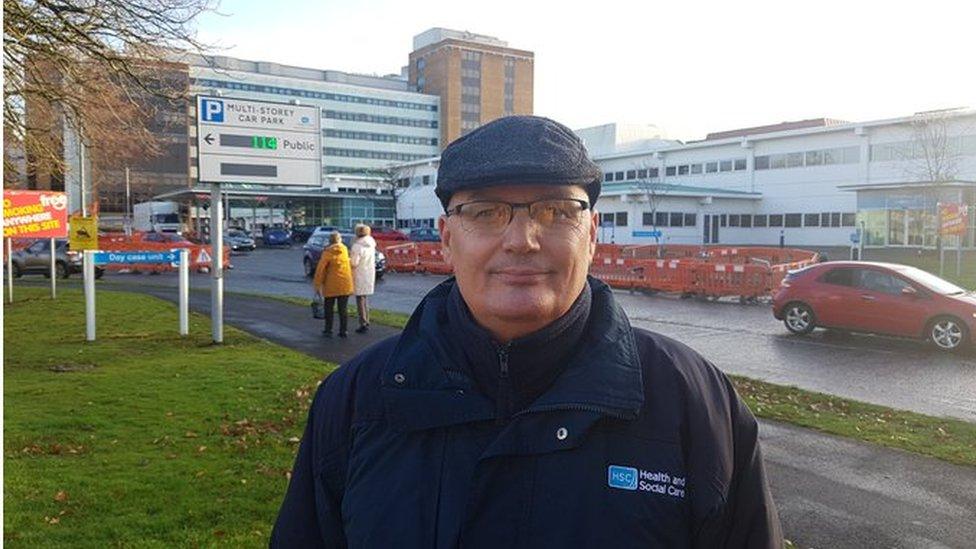
Mr Ward said staff were not being rewarded for the work they carried out
"We are running around 24/7 after cardiac arrests and people with serious haemorrhages.
"There's so much to the role that keeps the place functioning and we are not getting rewarded for it," he said.
"We are basically on minimum wage and you can't live the best quality of life that you should.
"We are at breaking point and I think we should go into direct rule as soon as possible. It's emotional because we are always thinking about the patients."
Unison nurses started taking action short of strike from Monday.
Speaking on BBC NI's Good Morning Ulster, Anne Speed of Unison welcomed the decision by the health trusts' chief executives to speak out in a joint statement.
"I was glad to hear that they didn't blame workers," she said.
"They have pointed in the direction of those who have access to money and those who can influence those who have access to money. That direction needs to be continued and the chief executives need to continue calling for that."
Ms Speed said that, so far, those who can offer compromise do not have access to money.
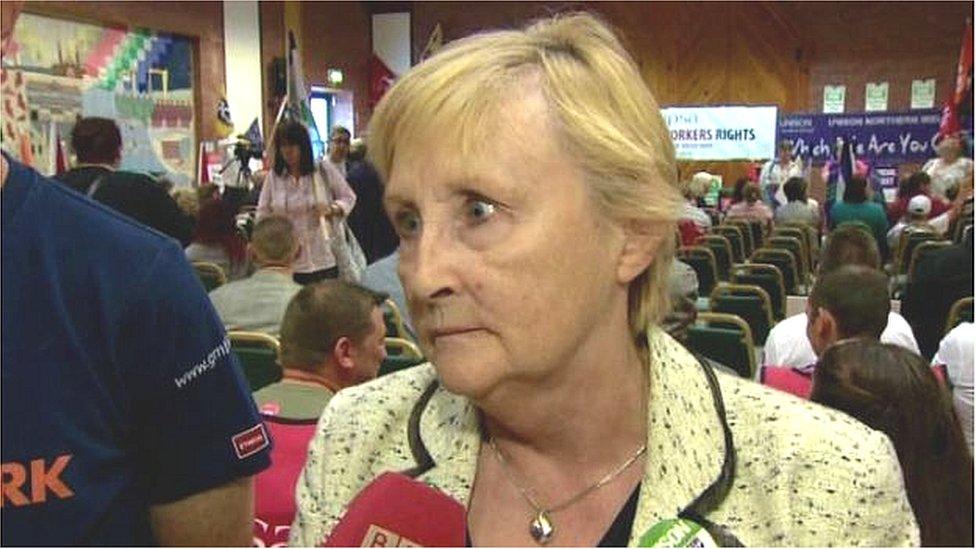
Anne Speed, Unison, called for compromise and 'money on the table'
She said the basis on which the Department of Health had looked for a resolution of the dispute was insufficient at this stage.
Ms Speed said Unison was not walking away from its responsibilities and was working to manage risk.
She said the planned complete withdrawal of labour by nurses on 18 December would be "very serious".
"When nurses remove themselves from routine nursing care it will be a very big wake-up call for everybody with anything to do with the health service, especially those in the leadership," she said.
On Tuesday, nurses from the Royal College of Nursing (RCN) took action short of strike by refusing to do any work not directly related to patient care.
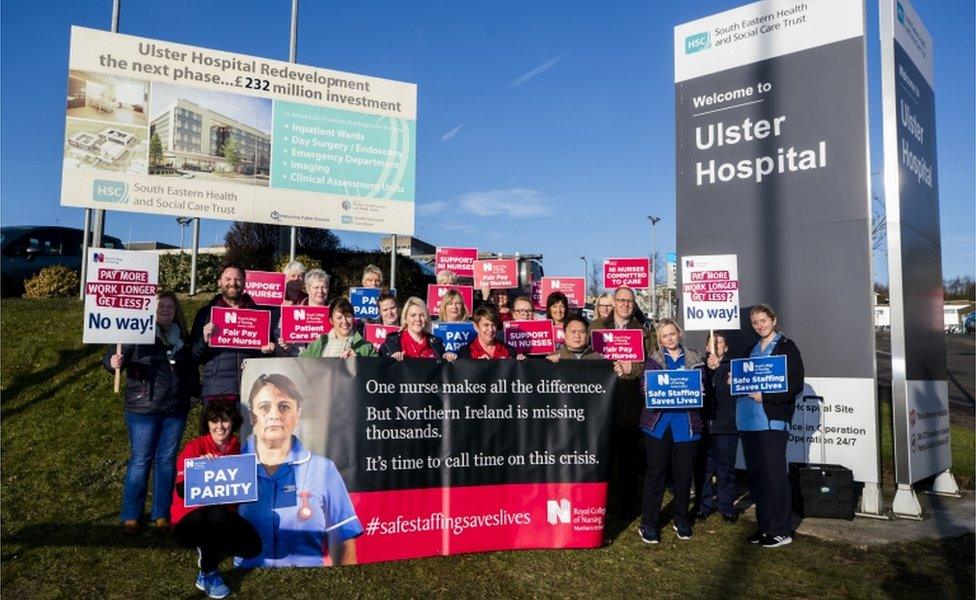
Members of the RCN took industrial action on Tuesday
The UK government said that as health is a devolved matter, only a restored Stormont executive could take decisions on the health service.
In a statement, the Northern Ireland Office said that while Julian Smith had further discussions with the NI Civil Service on Tuesday, he "has no powers to direct them or take decisions on health matters".
Two more days of industrial action, short of strike action, are to be held on 10 and 11 December.
Members of the RCN and trade unions Unite, Unison and NIPSA have voted to strike on 18 December.
- Published4 December 2019
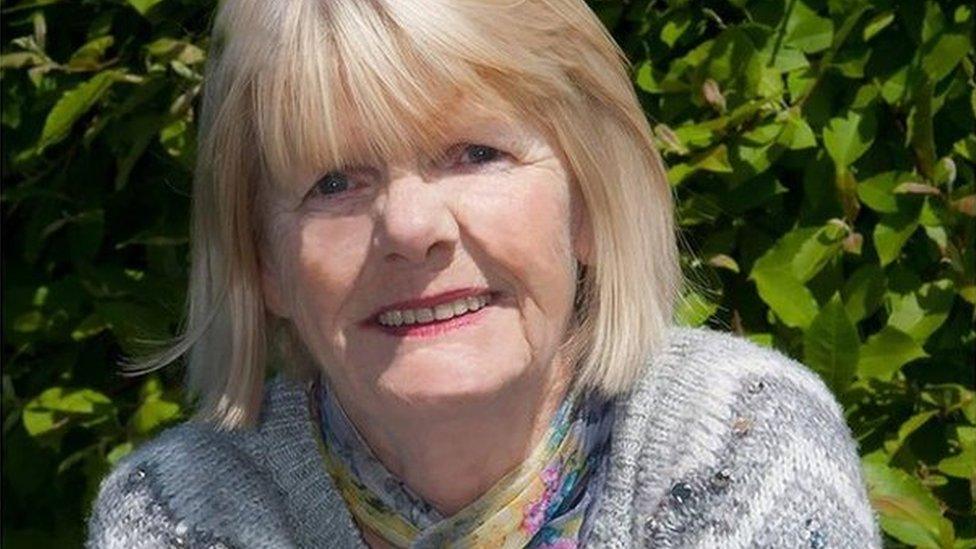
- Published3 December 2019
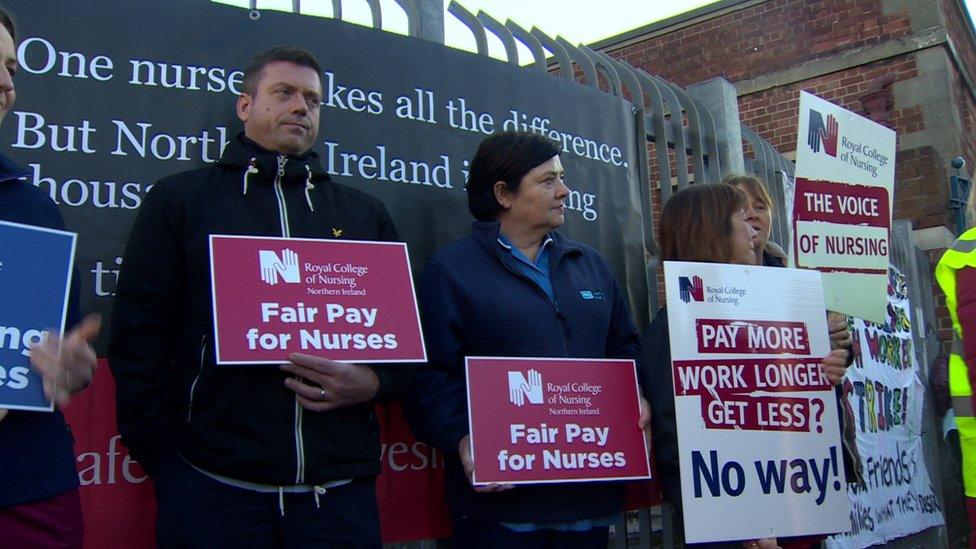
- Published3 December 2019
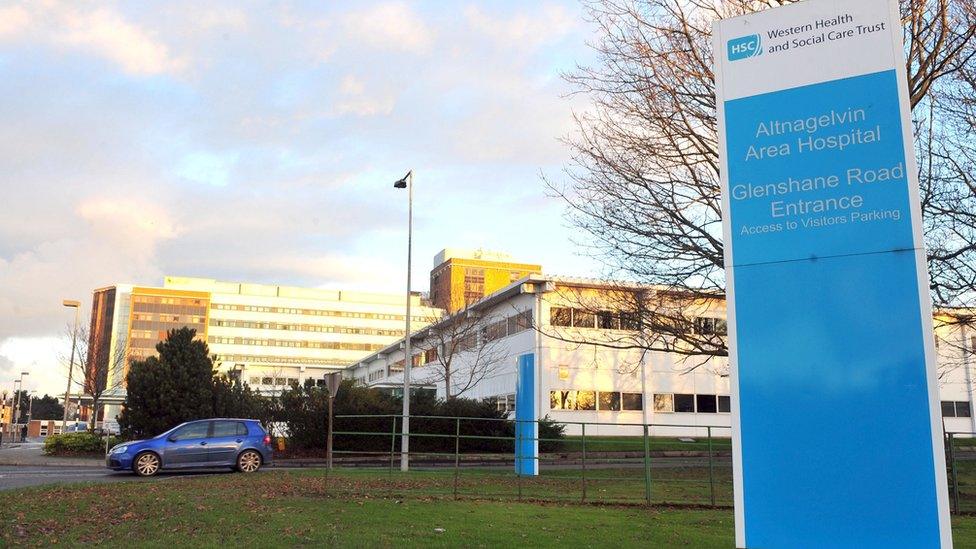
- Published2 December 2019
